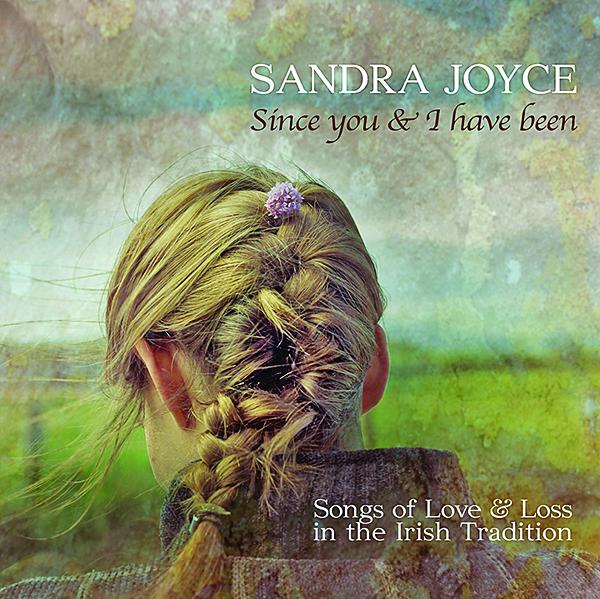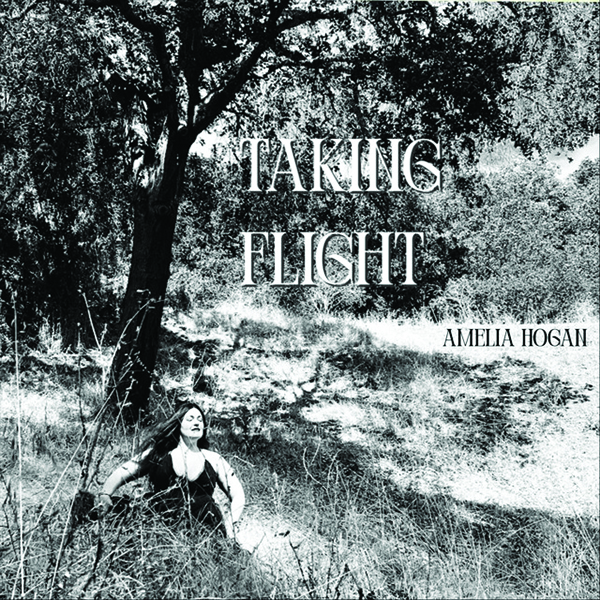June 24, 2023

No shortage of excellent new instrumental albums over the past several months – which I promise we’ll get to, eventually – but for now here are a couple of quite striking all-vocal releases that have leapt to the fore.
• Sandra Joyce: “Since You and I Have Been: Songs of Love and Loss in the Irish Tradition” – Joyce has a very impressive day job: She’s the executive dean of the Faculty of Arts, Humanities, and Social Sciences at the University of Limerick, where she previously directed its pioneering Irish World Academy of Music and Dance. She also happens to be one fine singer, as this album – her debut – demonstrates in thoroughly delightful fashion. Her voice is bright, clear and engaging, with superb diction and ornamentation that feels entirely natural and assured. Importantly, Joyce is adept at conveying a song’s emotional character with simplicity and directness; there’s no clasping of pearls, dabbing at the eye or nudging with the elbow.
And what a glorious selection of songs there are on “Since You and I Have Been,” from sources (which Joyce cites in the informative liner notes) that include Sarah Makem, Dolores Keane, Paddy Tunney, Eithne Ni Uallachain, Tom Lenihan, even Joan Baez. Some will certainly be familiar (“Barbara Allen,” “The Parting Glass,” “The Cherry Tree Carol”); others, while not exactly languishing in obscurity, nonetheless get a most welcome exposure (“Craigie Hill,” “One Morning in May,” “The Bonny Boy”).
Dónal Lunny, meanwhile, demonstrates his ever-skillful touch as producer, arranger, and accompanist on “Since You and I Have Been,” giving Joyce and the songs plenty of room while he (on bouzouki), daughter Cora Venus Lunny (violin), Ernestine Healy (concertina), and Niall Keegan (flute) lend congenial backing in various configurations.
All such elements converge with absolute splendor straight from the opening track, “Craigie Hill,” as Joyce’s exuberant vocals crest along on a steady, flowing tide provided by the Lunnys – Donal’s bouzouki even evokes a bluesy rock vibe at times. Although the song, for which Joyce cites Dolores Keane and Paddy Tunney as sources, concerns the imminent departure of a lover from his beloved (to seek his fortune in America – where else?), its subtext about repression at home versus freedom abroad give “Craigie Hill” a tint of defiant optimism amidst the gloom.
Most everyone has heard at least one version of “Barbara Allen,” about the “hard-hearted” young woman who comes to regret rejecting her lover, but Joyce’s rendition – from the singing of Armagh’s Sarah Makem – is especially poignant and sorrowful, yet not tear-stricken to the extreme. On “The Cherry Tree Carol” (from Joan Baez), she conveys a sincerity of ingenuous wonder, with Keegan’s gorgeous flute serving as practically a second voice. “Blackwater Side,” like “Craigie Hill,” is in the lovers’-goodbye genre – from Limerick’s Peter Dundon via renowned Donegal singer Rita Gallagher – and Joyce zeroes in on the couple’s trust and hopefulness even as the verses relate the obstacles ahead, all to a reverent concertina and bouzouki.
One could easily make the case for “One Morning in May” as the album’s highlight. Joyce – crediting Eithne Ni Uallachain and her recording with Gerry O’Connor, “Lá Lugh,” as the source via the repertoire of Antrim’s Len Graham – sings it unaccompanied, allowing for full attention to the unusual, almost eerie melody and the equally curious lyrics. She notes its origin as being in the “hedge-school tradition,” typified by a marked sophistication of language and literary references, and vestiges of 17th and 18th-century Gaelic poetry.
Such is the high quality of the singing throughout “Since You and I Have Been” that Joyce’s album-ending take on that favorite hail-and-farewell ditty, “The Parting Glass,” feels as fresh and vibrant as the nine tracks preceding it – a most eloquent goodbye. sandrajoycemusic.com

• Amelia Hogan: “Taking Flight” – Hogan is a northern Californian with diverse singing interests, notably Irish sean-nos, Scottish Gaelic, and Americana, and contemporary as well as traditional folk. Whatever a song’s origins, it’s impeccably delivered by her with both a subtlety and lilt, and a voice that tends toward the lower register – in the realm of a June Tabor or the late Helen Schneyer. Hogan has been a member of the bands Sheltering Sky and Molly’s Revenge, and previously released a solo album, “Transplants: From the Old World to the New,” that explores the theme of immigration and ancestry through American, Irish, and Scottish songs (e.g. “Wild Mountain Thyme,” “The Praties They Grow Small,” “Sixteen Tons”).
“Taking Flight” carries not so much a theme as a motif: birds as a common feature of our landscapes as well as the various symbols they represent in history, literature, and folklore – loss and sorrow but also hope and healing “and the ability to find beauty in the midst of hardship,” points out Hogan in her notes. Those songs on the album without an overt avian reference are perhaps best regarded as journeys between states of mind, she says, “like a bird taking flight.”
However one wants to characterize the album’s content, Hogan has done an admirable job in amassing material from a wide range of sources – songs from just about every Celtic-related nation there is, including the Isle of Man and Cornwall, and songwriters that include Anais Mitchell, Jez Lowe, Robert Burns (who was pretty good at poetry, too), and the Dublin band Lankum – and making it all fit together. There’s quite the range of tonality, too: the empathetic, dignified American hymn “The Old Churchyard”; Sir Samuel Ferguson’s winsome, bittersweet “Lark in the Clear Air,”; the fiery Scottish Jacobite song “Oran Eile Don Phrionnsa”; and Laurie Lewis’ cautionary “Wood Thrush’s Song.”
While Hogan certainly has a grasp of theatricality, she employs it wisely and not overly much, eschewing (thankfully) the fake-accent approach for the non-American material. There’s a snap and crack to her delivery in approximation of a Scottish burr on the centuries-old ballad “Twa Corbies” (set to a Breton tune which title translates as “The Swan”), and you can practically see the smile on her face as she relates the comically intricate verses in the true-romance memoir “The King of Ballyhooley” (with one of the best closing lines in Irish trad: “The family has increased in store now, 15 daughters all unruly; and bonny Jane she is me queen and I’m the king of Ballyhooley”). The rich emotive quality with which she invests “The Manx Lullaby,” meanwhile, is entirely appropriate – practically mandated – given the fledgling/child metaphor: “Fold thy wing and seek thy nest now/Oh shine the berry on the bright tree/The bird is home from the mountain and valley.”
Praise is in order for Hogan and co-producer Ray Frank for a judicious approach to arrangements, using a generally sparse amount of accompaniment that puts Hogan squarely in the forefront (and no excessive reverb to provide “atmosphere”). Credit to the guest musicians as well, especially Frank and Richard Mandel for their agile guitar-playing on various tracks (Mandel’s on “What Will We Do When We Have No Money” in particular) and harpist Maureen Brennan.
One particular trio of successive tracks accentuates the shades of mood and tone on the album. First is Burns’ “Westlin Winds”: Well-travelled, yes, but just a damn good song when you get down to it – especially with its juxtaposition of nature’s beauty and man’s callousness – and Hogan does plenty of justice to those classic Burns verses. Then comes the devastating, ultra-bleak “Hunting the Wren,” written by Lankum’s Ian Lynch with Lisa O’Neill and inspired by the Wrens of Curragh, a 19th-century community of women on the margins of society; the song uses imagery of Ireland’s Wren Day as a metaphor for the Wrens of Curragh’s mistreatment by the authorities and townspeople. It’s meant to chill as well as outrage – Ireland has only lately begun to come to terms with similar injustices in its history, such as Magdalene laundries and mother-baby homes – and, with a bare-bones, elegiac guitar and fiddle (Rebecca Richman) behind her, Hogan almost out-Lankums Lankum.
Which leads us to the title track, a mellifluous, resolute call for solidarity – written by Hogan and sung a cappella in four-part harmony with Frank, Marla Fibish, and Christa Burch – that suggests how we might take an example or two from our feathered friends: “The struggles before us/are small when compared/to birds all together/taking flight ’til we’re there.”
If that isn’t uplifting enough, closing out the album is Scots-born Canadian singer-songwriter David Francey’s “Red-Winged Blackbird,” which speaks to the resilience we can find through migratory birds traveling great distances to escape winter and finding their way back home. The infectious chorus might be a good one to have in mind during those dark January days when spring seems like it’ll never come – the titular character knows better. ameliahogan.com

